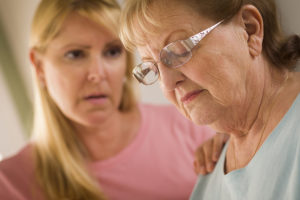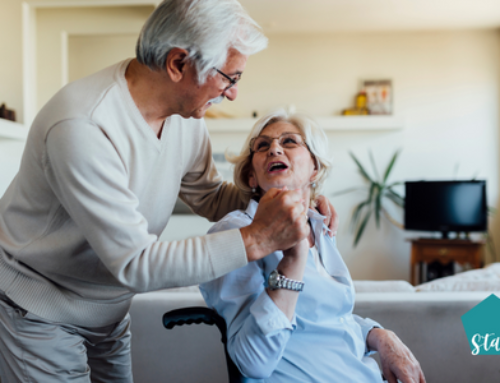Senior Depression: How Caregivers Can Offer Support
 Along with the many changes the body goes through, another common part of getting older is depression. Sadly, many older adults live alone after retirement, causing them to isolate themselves from the outside world. This isolation can create feelings of loneliness, which can ultimately turn into senior depression.
Along with the many changes the body goes through, another common part of getting older is depression. Sadly, many older adults live alone after retirement, causing them to isolate themselves from the outside world. This isolation can create feelings of loneliness, which can ultimately turn into senior depression.
The Toll of Senior Depression
Since elderly adults are at high risk for this disease, this age group also has one of the highest suicide rates in the United States. To combat depression in seniors, a senior care provider can be hired to offer your loved one the companionship and attention they need, while also assisting with any tasks that have become too hard for the elder to do anymore.
How a Senior Care Provider Can Make a Difference
If your loved one is battling depression, here are some ways to help them through their symptoms.
Do not ignore the symptoms.
Is your loved one refusing to eat or uninterested in activities they used to enjoy? Then they could be depressed. These symptoms mustn’t be pushed under the rug because the symptoms could get much worse without receiving proper treatments.
Let them talk.
If you notice that the elder is not acting like themselves, talk to them about it. Invite them to share what they are feeling and what their thoughts are in order to get a better sense of what they have been going through. Do not interrupt them as they are sharing with you because this could discourage them from opening up to you in the future.
Watch for little signs.
The elder may not be willing to share their depressed feelings with you right away because they do not want to be a burden on you, other family members, or their elderly care provider. Instead, watch for subtle changes in their mood and behavior to uncover how they are truly feeling.
Be careful about what words you use.
You may have a feeling that your loved one is depressed, but this is not a term that should be used when speaking with them. They need to come up with the idea that they are depressed on their own in order to seek treatment.
Give them independence.
The senior may have trouble being motivated to do their daily tasks, but have them do it if they are capable. By doing things for them that they are able to do themselves will make them feel worthless. Instead, praise them for a job well done when they do accomplish each task.
Encouraging Professional Help
Senior depression is a serious illness and one that needs to be treated as soon as possible. If you feel your loved one is suffering from this disease, encourage them to talk to someone about their symptoms, like a therapist or their physician.
For senior care in Cherry Hill, NJ and the surrounding areas, call and talk to us at (856) 321-1500.







